![Leandre, Joelle: Strings Garden [3 CDs] (Listen! Foundation (Fundacja Sluchaj!)) Leandre, Joelle: Strings Garden [3 CDs] (Listen! Foundation (Fundacja Sluchaj!))](https://www.teuthida.com/productImages/misc4/27483.jpg)
Three concerts from 2016 & 2017 of different string duos anchored by Leandre's double bass, starting at rue Victor Masse 75009 in Paris in a double bass duo with Bernard Santacruz; then a bass and cello duo at Le Triton Les Lilas, France with Gaspar Claus; and completing the set, a performances at DZIK, in Warszaw, Poland with violinist and violist Theo Ceccaldi.
Out of Stock
Quantity in Basket: None
Log In to use our Wish List
Shipping Weight: 8.00 units
Sample The Album:
Joelle Leandre-double bass
Bernard Santacruz-double bass
Gaspar Claus-cello
Theo Ceccaldi-violin, viola
Click an artist name above to see in-stock items for that artist.
UPC: 5905279364332
Label: Listen! Foundation (Fundacja Sluchaj!)
Catalog ID: FSR 10 | 2018
Squidco Product Code: 27483
Format: 3CDS
Condition: New
Released: 2018
Country: Poland
Packaging: Hardcover Book bound with 3 CDS
CD 1 recorded at 22, rue Victor Masse 75009, in Paris, France, on April 9th, 2016.
CD 2 recorded at Le Triton Les Lilas, France, on July 1st, 2016, by Jacques Vivante.
CD3 recorded in DZIK, in Warszaw, Poland, on October 15th, 2017.
"Nature can be an inexhaustible topic for artists who derive inspiration from its elegance, devastation and connotations. Here, world-class French bassist/composer/improviser Joelle Leandre and like-minded, futuristic countrymen, Bernard Santacruz (bass), Gaspar Claus (cello) and Theo Ceccaldi (violin, viola) seed growth, flourishment and a surfeit of aspects, pertaining to trees, leaves and flowers. With these duets occurring on a per-CD basis, you'll be treated to concepts and musings that inhabit the lower-register musical space, gushing with meticulous phrasings, stunning arco techniques and playful exchanges, but not a syrupy ode to the creative forces of nature. Therefore, if you're expecting a simile to Frank Sinatra's version of "April Showers," or Tchaikovsky's "Waltz of the Flowers," you've entered an erroneous musical space that is the antithesis to light-hearted fare, frequently coated with hummable content. Even though Ms. Leandre often chants and dishes out emphatic wordless vocals in the backdrop, it's more about seizing the moment, that often denotes the apex of masterful performances where-in these duets-the artists' vast expressionism is the prevailing ingredient. However, these achievements occur within dialogues that spawn a panorama of rapidly paced psychodramas, analogous to nature's interminable growth cycles, thriving organisms, and the prismatic characteristics of a garden. Yet the beauty of it relates to the continual reimaginations the audience will experience upon subsequent listens. The "Strings Garden" equates to an endless curve of discovery that tantalize our perceptions, and how we interpret and handle what our senses dictate, or how the musicians' reactions transpose into the ever-present improvisational climate. These sensations present illuminating factors in various shapes and outlooks. It's uncontestable that the artistes are enjoying themselves and performing for the audience and not delving into a progression ofself-satisfying diatribes. The musical soundscapes of 'Strings' inhabiting a garden can be thought of in terms of artists setting up their basses, violins, and cellos within the unbounded forces of nature to bow, pluck and interact with each other. They combine and swap their intuitions and thoughts to create aural canvasses that extend beyond any boundary that may intimate a static environment: a viewpoint, inferring an ideological channel that resists change. Joelle Leandre's resume would take volumes of text and is beyond the scope of these notes. Briefly, she's a John Cage disciple who has performed his works over the years and aligned with the creme de la creme of modern era improvisers such as, composer / reedman Anthony Braxton, guitarist Derek Bailey, fellow bassist William Parker and many other eminent new music pioneers. Her accomplices, Ceccaldi, Claus and Santacruz are contemporary heavyweights who have made significant strides within disparate musical formats, predominately in Europe. They are in-demand artists whose enviable skills and immeasurable creativity radiates a luminescent underpinning on these respective duets, each presenting the influences of Trees (CD-1), Leaves (CD-2) and Flowers (CD-3). - The Trees motif is partially designed with thunderous improv along with gruff and winding segments, eliciting imagery of a massive live oak tree, complete with curling limbs and a slanted trunk. But human qualities are often transformed into Leandre and Santacruz' musical spectrum with crying arco patterns and rejoiceful segments, shaded with temperate intervals. And the duo intersperses melodic ostinato grooves into their craft, as their use of space becomes an equalizer and a means for the audience to probably catch their breath. - Leandre and Claus' strenuous phrasings and the former's expressive background chants during the Leaves topic can become maddeningly intense, akin to a beauty and the beast thematic vibe. No doubt, they seize every moment, contrasted with subterranean-like resonance, blistering staccato lines and a clustering mode of attack, moderated with somber anguish and creaky treatments. In a loose sense, leaves may be zooming by in wayward fashion due to a storm or hurricane, while ending up in randomly populated locales. - On Flowers, Leandre and Ceccaldi attain a yin and yang vibe, owing to their complementary forces. With closed-hand plucking, sober dialogues and probing exchanges, the duo seems to inspect the scientific complexities of flowers. They also mimic human voices in spots with fervent bowing implementations and circular flurries. Ceccaldi's weeping violin passages may also parallel a scenario where flowers are used to alleviate grief or memorialize an affluent individual. Although the duo's fluent enactments may symbolize the tranquil aspect of flowers with an urgent plea for peace and goodwill, where the musicians' orbital extrapolations communicate nature's regenerative cycles.Needless to state, an electronics-centric program could be viewed as an inappropriate vision for initiatives concerning trees, leaves or flowers. On the flip side, electronic instruments are more conducive for parlaying space travel or to outline a modern-day Armageddon. Hence, the organic recordings performed with wood-based instruments transport a semblance of that timeworn adage of being one with nature. These sensibilities are driven to the forefront with these fascinating expositions, duly fabricated with timbral instruments that were created by Mother Earth. So, what better way to pay homage to this mythological entity that sculpted our planet's astonishing miracles then to make music from the tools our Earth goddess bequeathed to us. - Glenn Astarita, liner notes
Artist Biographies
• Show Bio for Joelle Leandre "Joëlle Léandre is a famous French Bassist and is known for her collaborations with other musicians in the field of improvised music. Born in France on September 12th, 1951, she made her music debut in 1984 with Les Douze Sons. Her childhood was filled with music, and she was particularly interested in the piano during her early years. In her later years, she developed an interest in double bass, which won her many honors and scholarships during her education. Her double bass teacher Pierre Delescluse encouraged her to apply to the Conservatoire National Superieur de Musique de Paris, where she was formally trained and noticed for her talent in the bass. Her outstanding musicianship took her to the United States and to the Centre for Creative and Performing Arts in Buffalo through a scholarship. In the United States, she expanded her network and met some of the best composers, such as John Cage, Giacinto Scelsi, and Morton Feldman. Among them, John Cage greatly influenced her music and compositions. Her time in the United States also enabled her to experience downtown New York music, which was another significant influence that led to her continued involvement in the field of improvised music. Some of her notable collaborations in the field of contemporary music are with Pierre Boulez, Merce Cunningham, John Cage, and Giacinto Scelsi. Among them, John Cage and Giacinto Scelsi were the biggest influences in her life and music. In an interview, Joëlle Léandre said that John Cage was her spiritual father and changed her perception of sound and music. In another interview, she tells how Giacinto Scelsi allowed her to discover her own music and how his music transported her into a new world of improved consciousness. In the field of jazz music, she collaborated with Derek Bailey, William Parker, and Sebi Tramontana. Her music was owned and distributed by different music labels, including FMP, Leo, RougueArt, and Red Toucan. Some memorable songs and albums she released throughout the years include Instant Replay, Les Douze sons, Trios, Sweet Zee, Frerebet, Joelle et Tetsu, Philippe Fenelon, Voyages, etc. Some of the recent releases include Can You Hear Me and Unleashed. She has also performed live at the Tampere Jazz Festival twice, where popular international artists compete with each other. Joëlle Léandre is also the member of European Women's Improvising Group (EWIG). The group evolved from the Feminist Improvising Group, and Joëlle Léandre joined the group in 1983. In the early 1900s, she co-founded Les Diaboliques with Irene Schweizer and Maggie Nicols, who were her long-time musician friends. Besides that, she also teaches several classes in prestigious universities about contemporary and improvised music. She has lived in France, Germany, and U.S during her lifetime, teaching at academic institutions in the religions and playing concerts. In 2002, she was invited to Canada as a visiting professor for music and composition." ^ Hide Bio for Joelle Leandre • Show Bio for Bernard Santacruz "Bernard Santacruz (* 1956 in Algiers) is a French jazz musician (double bass, composition). Santacruz began to learn self-taught electric bass and initially played in rock and fusion bands in the Marseille area, before he attended the Avignon Conservatory in 1986. There he studied double bass with Joseph Fabre and attended the jazz class of André Jaume ; he also had lessons with Charlie Haden (1989) and Ron Carter (1990). First professional appearances he had in the trio Soma ; in the 1990s, he worked with Charles Tyler, the first in France photos were taken (Folly Fun Music Magic). In 1995 he presented under his own name, the album Latitude 44, which he with Denis Charles, Frank Lowe and the African percussionist Cheikh Tidiane Fall had recorded in Pernes-les-Fontaines. Santacruz also played with Frank Lowe (duo album Short Tales, 1999), Serge Lazarevitch, Daunik Lazro, Michel Marre, Rémi Charmasson, Joël Allouche, Stephan Oliva, Anthony Ortega, Éric Barret, Denis Fournier, Lionel Garcin, Barry Altschul, Antoine Lisolo, Anders Griffen, Jim Baker, Christian Rollet, Thierry Maucci, Sabir Mateen, Charles Gayle,Ricky Ford, Jean-Luc Cappozzo, Jeff Parker and Michael Zerang, in the 2010s also with Philippe Deschepper. In the field of jazz he was involved between 1990 and 2012 in 17 recording sessions. " ^ Hide Bio for Bernard Santacruz • Show Bio for Gaspar Claus "Gaspar Claus is a tireless explorer who ceaselessly re-configures the world map of music. A cross-country cellist who might be described as the heretic heir of the exemplary Tom Cora, with whom he shares the blend of popular and erudite styles and a taste for melody and racket alike, along with an all-encompassing appetite, he allows his unkempt technique to serve the pure joy of being alive, ever open to surprises, with a humanist drive which contaminates his countless collaborations (from Jim O'Rourke to Sufjan Stevens and Rone to Angélique Ionatos). Improvised music (alongside Keiji Haino or Serge Teyssot-Gay), contemporary music (with Bryce Dessner), flamenco (Pedro Soler and Ines Bacan) or pop (Barbara Carlotti, Peter Von Poehl), everything that comes into his hands transforms into an exercise in the intensification of one's tastes and the bursting of boundaries. An unhindered musician whose moving aesthetic shares the ethics of buccaneering, of contraband and sharing, Gaspar Claus is also the instigator of the "permanent festival". This great invisible and scattered brotherhood offers, beyond any cliquish spirit, to propagate a conception of emancipated creation throughout the world, the idea of a gratuitous and spontaneous action whose gesture is invented as it is discovered. A brotherhood without dogma nor hierarchy, undefinable, uncontainable, uncapturable. Gaspar Claus belongs to those musicians for whom music is above all the manifestation of one's presence to the world, and an uninterrupted celebration of obsolete and yet oh how subversive values such as frienship, the re-invention of togetherness, or the violence of pleasure. Values which he exalts with the violinists Carla Pallone and Christelle Lassort with whom he established Vacarme, a trio equally committed to play feverishly along with artists such as Rover or Stranded Horse as it is to perform untamed renditions of contemporary composers." ^ Hide Bio for Gaspar Claus • Show Bio for Theo Ceccaldi "Theo Ceccaldi surely figures among the great revelations of the hexagonal contemporary music. Taken on a jazz scene at a young age in very serious classical studies (punctuated by a First Violin Prize, writing and chamber music in 2004), but always attracted by the freedom of jazz, he has truly found his way by creating in 2010 with his brother Valentin on cello and William Aknine on guitar, an original trio linking the western chamber music tradition and free improvisation. Winner of Orléans'Jazz springboard in 2011, Theo Ceccaldi Trio has since confirmed all the good we could think of him signing another two discs for Ayler Records, and winning the device "Jazz Migration" 2014 AJC. Founding member of the young trio Tricollectif, the violinist also participates actively in a series of trainings including the Toons (group of his brother Valentin), room quartet La Scala and Loving Suite Birdy So pianist Roberto Negro (with Elise Caron ). Praised by peers, Theo Ceccaldi recently enters the quartet led by Régis Huby iXi and Guillaume Roy, the project "A la recherche du roi frippé" Mederic Collignon revisiting music King Crimson, and the Franco-German byte TEE Pianist Hans Lüdemann whole and the new tentet Joelle Leandre "Can You Hear Me? "(Alongside Alexandra Grimal)." ^ Hide Bio for Theo Ceccaldi
4/2/2025
Have a better biography or biography source? Please Contact Us so that we can update this biography.
4/2/2025
Have a better biography or biography source? Please Contact Us so that we can update this biography.
4/2/2025
Have a better biography or biography source? Please Contact Us so that we can update this biography.
4/2/2025
Have a better biography or biography source? Please Contact Us so that we can update this biography.
Track Listing:
CD1
1. Tree No.1 (11.56)
2. Tree No. 2 (7.21)
3. Tree No. 3 (7.22)
4. Tree No. 4 (5.38)
5. Tree No. 5 (8.35)
6. Tree No. 6 (8.44)
CD2
1. Leaf no. 1 (8.51)
2. Leaf no. 2 (7.07)
3. Leaf no. 3 (5.01)
4. Leaf no. 4 (6.17)
5. Leaf no. 5 (3.10)
6. Leaf no. 6 (7.04)
7. Leaf no. 7 (7.53)
CD3
1. Flower no. 1 (4.34)
2. Flower no. 2 (4.41)
3. Flower no. 3 (3.20)
4. Flower no. 4 (5.36)
5. Flower no. 5 (5.39)
6. Flower no. 6 (5.23)
7. Flower no. 7 (3.26)
8. Flower no. 8 (6.22)
9. Flower no. 9 (7.04)
Box Sets
Improvised Music
Jazz
Free Improvisation
European Improvisation, Composition and Experimental Forms
Duo Recordings
Stringed Instruments
Search for other titles on the label:
Listen! Foundation (Fundacja Sluchaj!).


![Leandre, Joelle: Strings Garden [3 CDs] (Listen! Foundation (Fundacja Sluchaj!)) Leandre, Joelle: Strings Garden [3 CDs] (Listen! Foundation (Fundacja Sluchaj!))](https://www.teuthida.com/productImages/full/27483.Full.jpg)
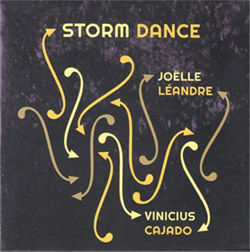
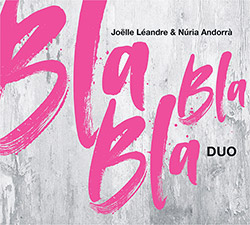


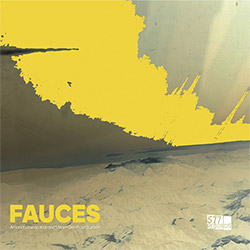
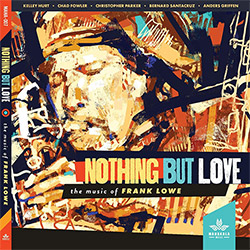
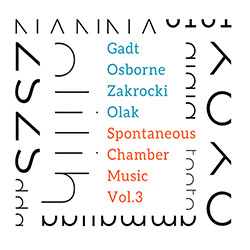
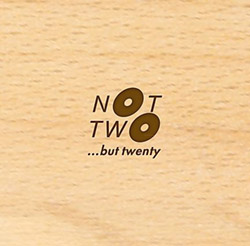




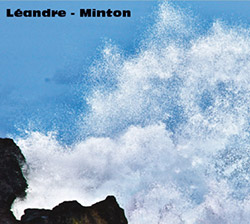
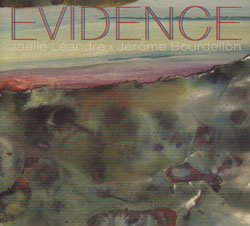
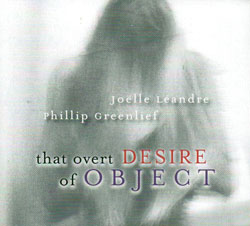
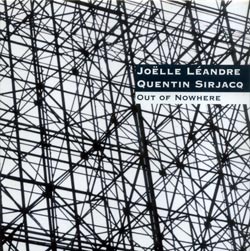
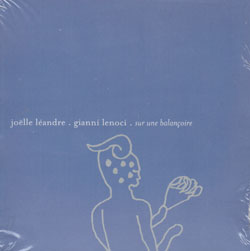
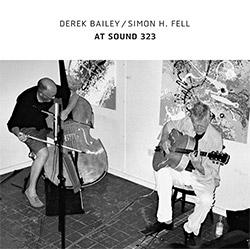
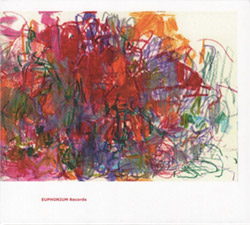
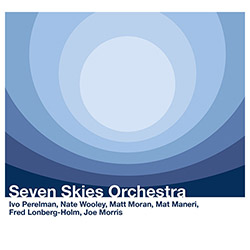
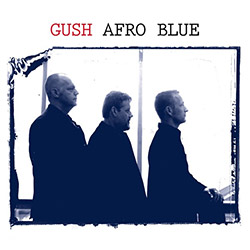
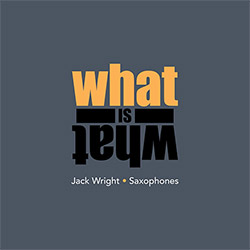


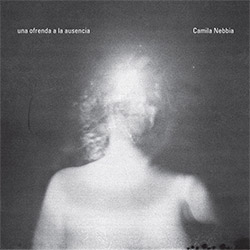
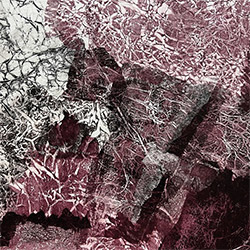

![Niblock, Phill / Anna Clementi / Thomas Stern: Zound Delta 2 [VINYL]](https://www.teuthida.com/productImages/misc4/34623.jpg)
![Yoko, Ono / The Great Learning Orchestra: Selected Recordings From Grapefruit [2 CDs]](https://www.teuthida.com/productImages/misc4/35841.jpg)

![Brotzmann, Peter / John Edwards / Steve Noble / Jason Adasiewicz: The Quartet [2 CDs]](https://www.teuthida.com/productImages/misc4/35975.jpg)
![Brotzmann, Peter / John Edwards / Steve Noble / Jason Adasiewicz: The Quartet [VINYL 2 LPs]](https://www.teuthida.com/productImages/misc4/35976.jpg)
![Thomas, Pat: The Solar Model of Ibn-Al Shatir [VINYL]](https://www.teuthida.com/productImages/misc4/36044.jpg)
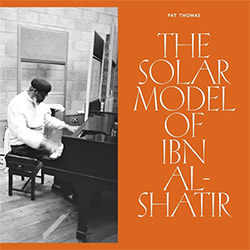



![Rodrigues, Ernesto / Nuno Torres / Guilherme Rodrigues: Whispers In The Moonlight - In Seven Movements [2CDs]](https://www.teuthida.com/productImages/misc4/35765.jpg)



![Cocks, Laura: FATHM [VINYL]](https://www.teuthida.com/productImages/misc4/36055.jpg)










![Ackerley / Prymek / Turner: All Hope With Sleeping Minds [CASSETTE]](https://www.teuthida.com/productImages/misc4/35950.jpg)
![Myers, David Lee : Tin Drop Tear [BOOK w/ DOWNLOAD]](https://www.teuthida.com/productImages/misc4/36030.jpg)




![Schindler, Udo / Sandy Ewen / Damon Smith: Munich Sound Studies Vols. 4, 5 & 6 [3 CDs]](https://www.teuthida.com/productImages/misc4/35966.jpg)
![Turbulence Orchestra & Sub-Units: Smear Out the Difficulties (Double Live) [2 CDs]](https://www.teuthida.com/productImages/misc4/36048.jpg)


![Perelman, Ivo / Tyshawn Sorey: Paralell Aesthetics [2 CDs]](https://www.teuthida.com/productImages/misc4/35871.jpg)


![Sjostrom, Harri: SoundScapes #4 Festival Berlin 2023 [3 CDs]](https://www.teuthida.com/productImages/misc4/35874.jpg)



![Glenn, Jordan: Flustered [CASSETTE]](https://www.teuthida.com/productImages/misc4/35948.jpg)










![Olencki, Weston : Pearls Ground Down To Powder [VINYL]](https://www.teuthida.com/productImages/misc4/35956.jpg)
![Myers, David Lee: Oculus [2CDs]](https://www.teuthida.com/productImages/misc4/35857.jpg)


![dustsceawung: dustsceawung [CASSETTE w/ Download]](https://www.teuthida.com/productImages/misc4/35753.jpg)




![Halls of the Machine: Atmospheres For Lovers And Sleepers [CASSETTE w/ DOWNLOAD]](https://www.teuthida.com/productImages/misc4/35806.jpg)



![AHC (Alexander Cooper): Lase [2 CDs]](https://www.teuthida.com/productImages/misc4/35754.jpg)



![Fagaschinski, Kai / Yan Jun : Graveyard Processions [VINYL w/ DOWNLOAD]](https://www.teuthida.com/productImages/misc4/35474.jpg)









![Zorn, John / JACK Quartet: The Complete String Quartets [2 CDs]](https://www.teuthida.com/productImages/misc4/35609.jpg)

![Lonsdale, Eden: Dawnings [2 CDs]](https://www.teuthida.com/productImages/misc4/35480.jpg)







![Sanna, Claudio: Compositori Sardi Contemporanei II [2 CDs]](https://www.teuthida.com/productImages/misc4/35317.jpg)







![Zurria, Manuel: Fame di Vento [3 CDs]](https://www.teuthida.com/productImages/misc4/35167.jpg)


![Electric Bird Noise / Derek Roddy: 8-10-22 [CD EP]](https://www.teuthida.com/productImages/misc4/35970.jpg)








![Elephant9 : Mythical River [VINYL]](https://www.teuthida.com/productImages/misc4/34624.jpg)



![Elephant9 with Terje Rypdal: Catching Fire [VINYL 2 LPs]](https://www.teuthida.com/productImages/misc4/35355.jpg)
![Deerlady (Obomsawin, Mali / Magdalena Abrego): Greatest Hits [VINYL]](https://www.teuthida.com/productImages/misc4/34876.jpg)







![Surplus 1980: Illusion of Consistency [CD]](https://www.teuthida.com/productImages/misc4/35069.jpg)
![Staiano, Moe: Away Towards the Light [VINYL + DOWNLOAD]](https://www.teuthida.com/productImages/misc4/35037.jpg)



![Caveira (Gomes / Sousa / Abras / Ferrandini): Ficar Vivo [VINYL]](https://www.teuthida.com/productImages/misc4/34643.jpg)
![Coley, Byron: Dating Tips for Touring Bands [VINYL]](https://www.teuthida.com/productImages/misc4/17906.jpg)

![Lost Kisses: My Life is Sad & Funny [DVD]](https://www.teuthida.com/productImages/misc4/lostKissesDVD.jpg)